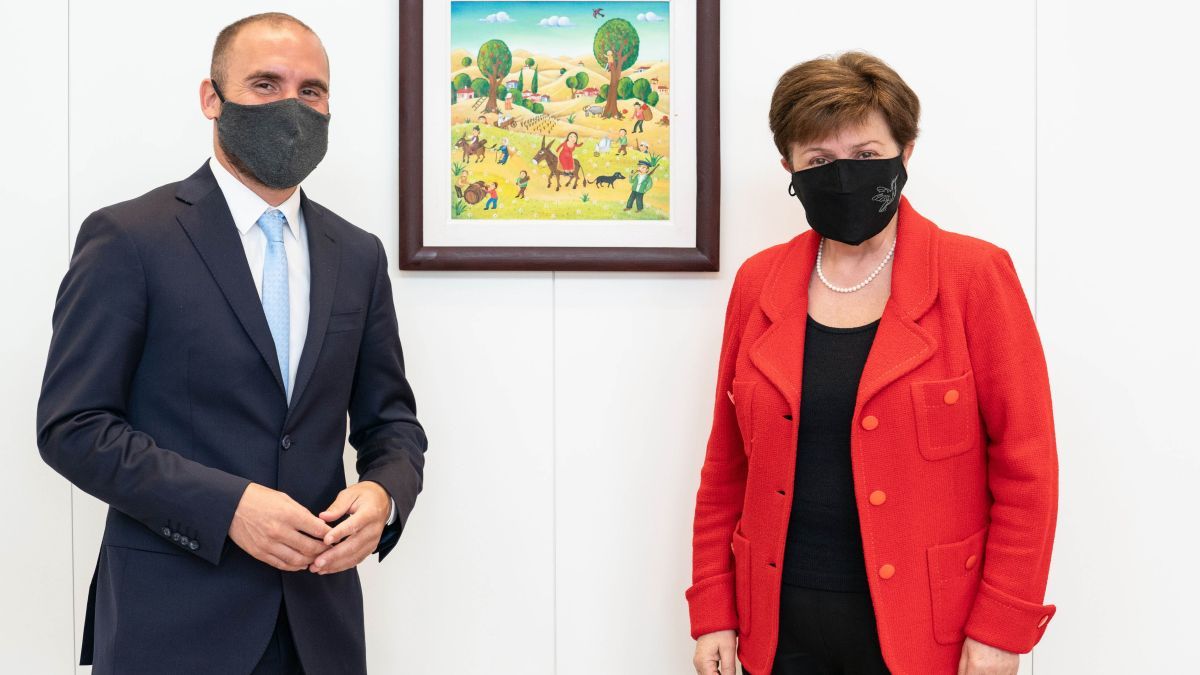Jonathan Davidsonundersecretary of the Treasury for legislative affairs in the administration of Joe Bidentold lawmakers the surcharges were meant to address the increased risk to shareholders involved in lending large sums to member countries. “They do not apply to the poorest countries in the world”Davidson added, saying the loans made were often at rates well below market rates.
“Surcharge revenues for those countries that pay them help create precautionary balances to protect IMF shareholders against potential losses”Davidson wrote in his response to a January 10 letter from lawmakers, a copy of which was seen by Reuters.
Argentina is not the only country that had requested that a reduction in surcharges be analyzed. There was also a request in this regard by the G20. The national government estimates that the surcharges suppose extra payments of US$1,000 million per year for the coffers.
At the beginning of April 2021, within the framework of the G-20 meeting, the Minister of Economy, Martin Guzmanraised with Kristalina Georgieva, managing director of the IMF, the need to lower cost overruns in IMF programs, which he considers “regressive and procyclical.”
According to the rules of the multilateral organization, for credits such as the one Argentina has, when the level of debt exceeds 187.5% of the country’s quota, 200 basis points more than the IMF base rate are paid. And if the program extends for more than three years, the extra cost rises to 300 basis points.
But the US Treasury dismissed this operation. “From the Treasury’s point of view, the surcharges must be seen in the context of the IMF’s balance sheet, and more importantly, its ability to absorb potential losses from non-payment of its loans.”He said.
Washington’s opinion is vital since the United States is the largest shareholder in the global credit institution, which is financed by its member states; although Germany, France and Great Britain have been open to reviewing the policy of surcharges.
Democratic Representatives Jesus Garcia, Alexandria Ocasio-Cortez and Pramila Jayapal addressed a letter last month to the Secretary of the Treasury, Janet Yellenurging her to back a review of a policy they said was “unfair and counterproductive,” and robbed countries of resources needed to combat the COVID-19 pandemic.
Argentina, which is expected to spend some $3.3 billion in surcharges between 2018 and 2023repeatedly called for temporary relief from COVID-19 surcharges, but IMF executive board members remain divided on the issue overall.
Members of the IMF’s executive board reviewed the role of surcharges, now the fund’s biggest source of income, late last year, without reaching a final decision. A decision on this issue is still awaited.
Source: Ambito
David William is a talented author who has made a name for himself in the world of writing. He is a professional author who writes on a wide range of topics, from general interest to opinion news. David is currently working as a writer at 24 hours worlds where he brings his unique perspective and in-depth research to his articles, making them both informative and engaging.




